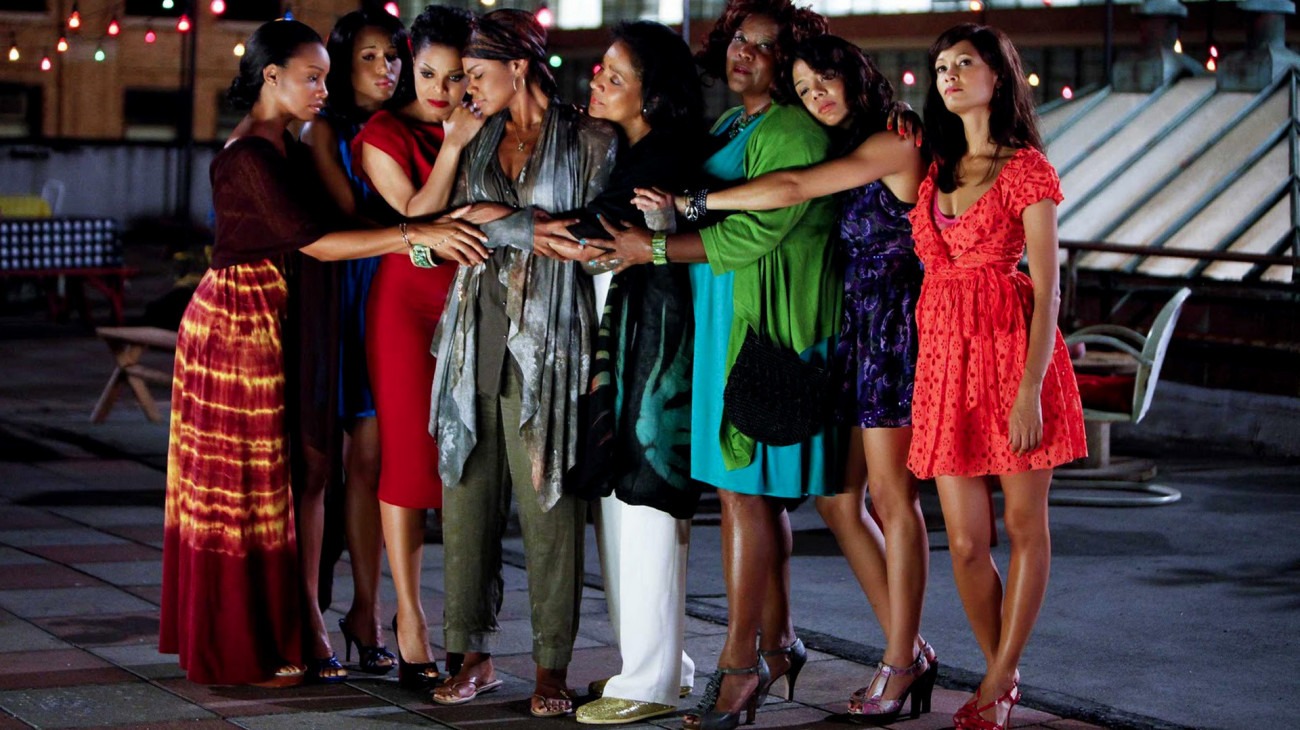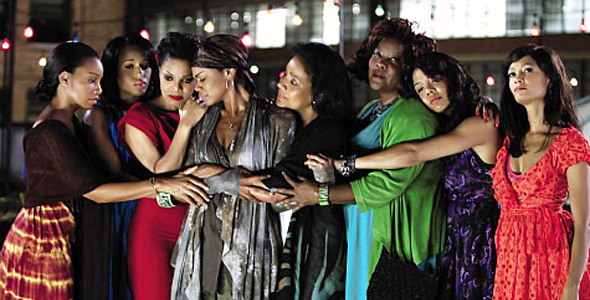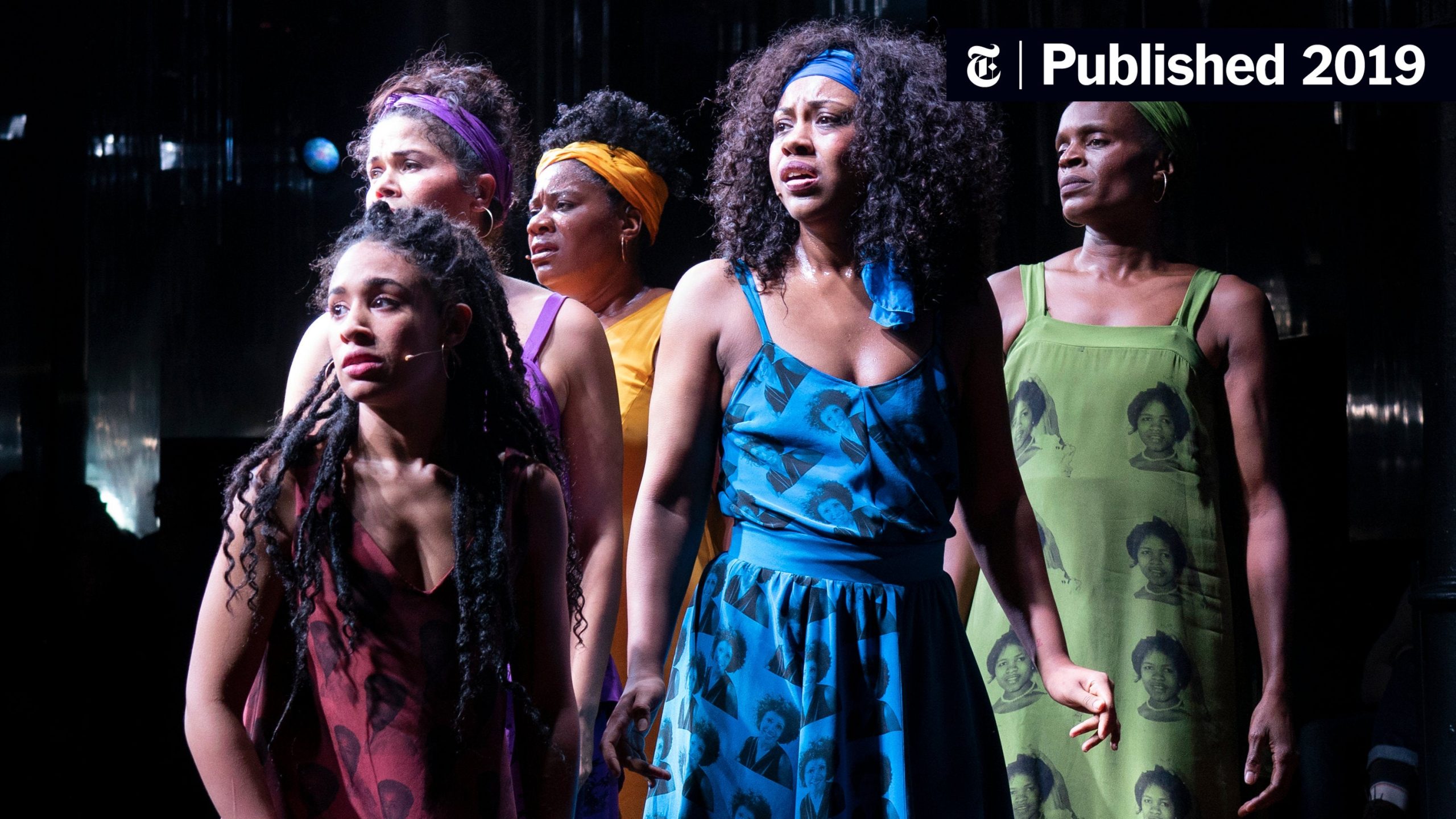For Colored Girls (2026)

For Colored Girls (2026)
Directed by Tyler Perry
Starring: Janet Jackson, Whoopi Goldberg, Thandiwe Newton, Kerry Washington, Anika Noni Rose, Phylicia Rashad, Kimberly Elise
“Even broken pieces can shine.”
Years have passed since the last chapter of their lives, but the weight of love, loss, and survival still lingers in the hearts of these women. Time has transformed them, each bearing the marks of their personal battles, yet still standing, still searching for solace in the most intimate corners of their beings. In For Colored Girls (2026), these women—wiser, weathered, and more deeply rooted in their own narratives—are not merely surviving, but thriving in the face of what was once unimaginable. The years may have changed them, but the scars they bear, the wisdom they’ve earned, and the lives they’ve touched make them stronger than ever before.
The story opens with a sense of quiet resolve, as the women come to terms with their pasts while navigating the present, still held together by the threads of their collective history and the unbreakable bond of sisterhood. It is a narrative about resilience, about rebuilding what was broken, and about finding the courage to embrace the pieces that have been shattered. From the moment these women cross paths again, the audience is reminded that healing is a lifelong journey—one filled with setbacks, challenges, and, ultimately, grace.
Each woman, whose life has been touched by trauma, finds herself on a unique path toward healing. Through their struggles and triumphs, they learn that peace cannot be forced, and that sometimes, peace comes not in the absence of pain but in its acceptance. The rhythm of their lives is a symphony of shared experiences, each of them finding strength not only within themselves but in the presence of the others who walk beside them.
Janet Jackson’s character, once a victim of violence and betrayal, has slowly rebuilt herself into someone who radiates both strength and vulnerability. Her journey is one of self-discovery, of learning to trust again, and of accepting that her past, though painful, does not define her future. Whoopi Goldberg’s character, the matriarch of the group, brings wisdom and quiet strength to every conversation, yet her own struggles with forgiveness form the foundation of her journey toward peace. Thandiwe Newton’s portrayal of a woman battling the internalized weight of a broken marriage is both heartbreaking and inspiring. Her arc is one of letting go, of finding the courage to step into the unknown and redefine her own narrative.
Kerry Washington’s character, always the one who keeps her emotions under wraps, begins to peel back the layers of her guarded persona to reveal a woman full of hidden desires, unspoken dreams, and a need for true connection. Anika Noni Rose’s portrayal of a woman who has endured unimaginable loss is a testament to the power of reinvention, as she takes the painful lessons of her past and turns them into the guiding light for her future. Phylicia Rashad’s character, a woman who has spent much of her life in self-imposed isolation, finds that the bonds of sisterhood and the love of family can heal even the most broken heart. And finally, Kimberly Elise’s character, whose journey has always been one of survival, must now confront the reality that survival alone is no longer enough—she longs for joy, for peace, and for the freedom to fully embrace the life she has fought so hard to build.
The women’s stories intertwine in ways that feel both poignant and inevitable. At times, the weight of their collective trauma seems almost too much to bear, but just as quickly, the healing begins. They lean on each other, offering wisdom and solace where words fail. Every laugh shared, every tear shed, every embrace becomes a silent prayer for healing, for forgiveness, and for the strength to continue. Their lives, once fractured and lost in the chaos of their personal battles, begin to take shape as they find themselves once again, not as individuals but as a united force—bound by love, by history, and by an unspoken promise to never let each other go.
The journey to healing is never easy, but in For Colored Girls (2026), it is beautifully illustrated that every scar tells a story, and every break in the heart can be a place for light to shine through. The healing is not linear; it is full of setbacks and missteps, but it is also rich in growth, in love, and in the power of women coming together to reclaim their strength.
This luminous sequel does more than continue the story—it builds upon the legacy of For Colored Girls Who Have Considered Suicide / When the Rainbow Is Enuf, carrying its message of resilience and healing forward into a new generation. It is a love letter to the women who have suffered, endured, and triumphed against all odds. The film beautifully conveys the idea that even in the darkest moments, there is still hope, still love, and still the chance for a new beginning.
The world has changed, but the core of the story remains the same: that healing, though difficult, is possible, and that love, in all its forms, has the power to transform. For Colored Girls (2026) is a celebration of strength, vulnerability, and the unbreakable bonds of sisterhood. It is a reminder that no matter how much we may have endured, there is always a way to heal and grow. And in the end, there is always a way to shine.











